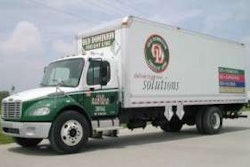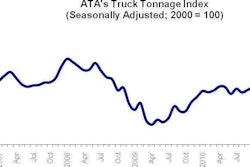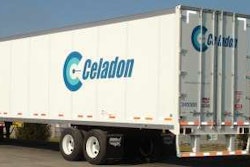The American Trucking Associations told the Pipeline and Hazardous Materials Safety Administration it “strongly opposes” a proposal to require tank trucks to install equipment to drain flammable liquid from the piping used for loading and unloading. In comments filed April 27, ATA said PHMSA should drop its proposal because the costs associated with the so-called wetlines rule “far exceed the purported public safety benefits.”
“PHMSA claims to be a data-driven risk-based regulatory agency,” ATA wrote in its remarks. “However, this proposed rule departs from those important goals. We are extremely disappointed that the agency has turned its back on real-world data in favor of a systematic group of unproven, unrealistic assumptions that bias the cost-benefit analysis to justify the proposed rule.”
PHMSA is proposing to amend the hazardous materials regulations to prohibit the transportation of flammable liquids in unprotected external product piping on U.S. Department of Transportation specification cargo tank motor vehicles. PHMSA says these amendments, if adopted as proposed, will reduce fatalities and injuries that result from accidents during transportation involving the release of flammable liquid from unprotected external product piping. The comment period for the NPRM, originally set to close on March 28, was extended until April 27.
“Earlier this year, President Obama called on his regulatory agencies to examine their rules and to eliminate those that don’t make sense,” says Bill Graves, ATA president and chief executive officer. “This wetlines proposal is a perfect example of one of those rules.”
According to PHMSA, there is a segment of the cargo tank motor vehicle population that transports flammable liquid material that is not subject to prohibition of wetlines unless the vehicle is equipped with bottom-damage protection devices. PHMSA says these CTMVs continue to be involved in motor vehicle accidents, resulting loss of life attributable to wetlines.
“As a tank truck operator that hauls gasoline, I know how important it is for our trucks to operate safely,” says Barbara Windsor, president and CEO of Hahn Transportation Inc. and chairman of ATA. “However, this proposal will simply add immense costs for fleets without improving safety. It will impose an unnecessary burden on small businesses like mine all across the country.”
Although no catastrophic incident has occurred in the recent past, PHMSA and the National Transportation Safety Board contend that incidents are likely to occur in the future. “We base our concerns on the population of CTMVs involved in flammable liquid service, the daily volume of traffic on our nation’s roadways, and the possibility the average motor vehicle occupancy will increase as gasoline prices increase,” PHMSA states in its Federal Register notice.
“Outside of existing conspicuity and outreach initiatives, there is little that PHMSA can do to prevent a collision between a motor vehicle and the wetlines of a CTMV,” PHMSA states. “However, PHMSA can implement additional measures to ensure that DOT specification CTMVs are utilized and designed in a manner that fully considers the likelihood and potential consequences of a wetlines incident and the hazards that such an incident poses to the vehicle driver and traveling public.”











